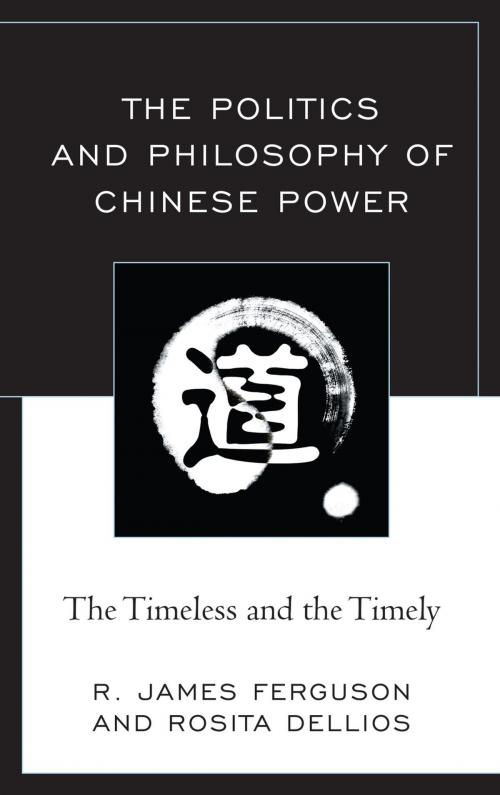The Politics and Philosophy of Chinese Power
The Timeless and the Timely
Nonfiction, History, Asian, China, Religion & Spirituality, Philosophy, Political, Social & Cultural Studies, Political Science, International| Author: | R. James Ferguson, Rosita Dellios | ISBN: | 9780739192955 |
| Publisher: | Lexington Books | Publication: | December 12, 2016 |
| Imprint: | Lexington Books | Language: | English |
| Author: | R. James Ferguson, Rosita Dellios |
| ISBN: | 9780739192955 |
| Publisher: | Lexington Books |
| Publication: | December 12, 2016 |
| Imprint: | Lexington Books |
| Language: | English |
This book provides a timely analysis of the politics, philosophy, and history of Chinese power, focusing on social, strategic, and diplomatic trends that have shaped China for over three thousand years. Chinese elites have used the past to inform the present, but have also mobilized new ideas to address the country’s rapid transition to global power. China’s intellectual world can draw on a surprisingly pluralist legacy. When Chinese thinkers assess “power,” they bring to bear their classical legacy, the military classics, Chinese socialism, and Western political thought. There are also a number of intriguing formulations that give shape to the exercise of Chinese power. Among these are comprehensive national strength, stability preservation, soft power, asymmetric conflict, and counter-intervention strategies. This book looks at key periods in Chinese history when attitudes to power evolved and at their current expressions. These include China’s expanded use of think tanks to chart the future, efforts at creating an eco-civilization to balance growth, and an extended set of security and information capabilities. From observing the centrality of power in today’s international affairs, the book moves to the foundational concepts of Chinese governance: its belief in a strategic configuration of power—as understood in military contexts—as well as its growing diplomatic and maritime engagement abroad. This analysis culminates in new ideas of functional multipolarity. Power is also deployed internally: China’s use of nationalism as a major tool for state-building and cohesion, the ongoing role of socialism, and the People’s Liberation Army are all examined in this light. China’s current strategic culture has shaped President Xi Jinping’s search for a new model of power for China in the twenty-first century, an endeavor that will have serious implications for the future global order. This book provides an alternative perspective on China’s trajectory towards a revised international system.
This book provides a timely analysis of the politics, philosophy, and history of Chinese power, focusing on social, strategic, and diplomatic trends that have shaped China for over three thousand years. Chinese elites have used the past to inform the present, but have also mobilized new ideas to address the country’s rapid transition to global power. China’s intellectual world can draw on a surprisingly pluralist legacy. When Chinese thinkers assess “power,” they bring to bear their classical legacy, the military classics, Chinese socialism, and Western political thought. There are also a number of intriguing formulations that give shape to the exercise of Chinese power. Among these are comprehensive national strength, stability preservation, soft power, asymmetric conflict, and counter-intervention strategies. This book looks at key periods in Chinese history when attitudes to power evolved and at their current expressions. These include China’s expanded use of think tanks to chart the future, efforts at creating an eco-civilization to balance growth, and an extended set of security and information capabilities. From observing the centrality of power in today’s international affairs, the book moves to the foundational concepts of Chinese governance: its belief in a strategic configuration of power—as understood in military contexts—as well as its growing diplomatic and maritime engagement abroad. This analysis culminates in new ideas of functional multipolarity. Power is also deployed internally: China’s use of nationalism as a major tool for state-building and cohesion, the ongoing role of socialism, and the People’s Liberation Army are all examined in this light. China’s current strategic culture has shaped President Xi Jinping’s search for a new model of power for China in the twenty-first century, an endeavor that will have serious implications for the future global order. This book provides an alternative perspective on China’s trajectory towards a revised international system.















